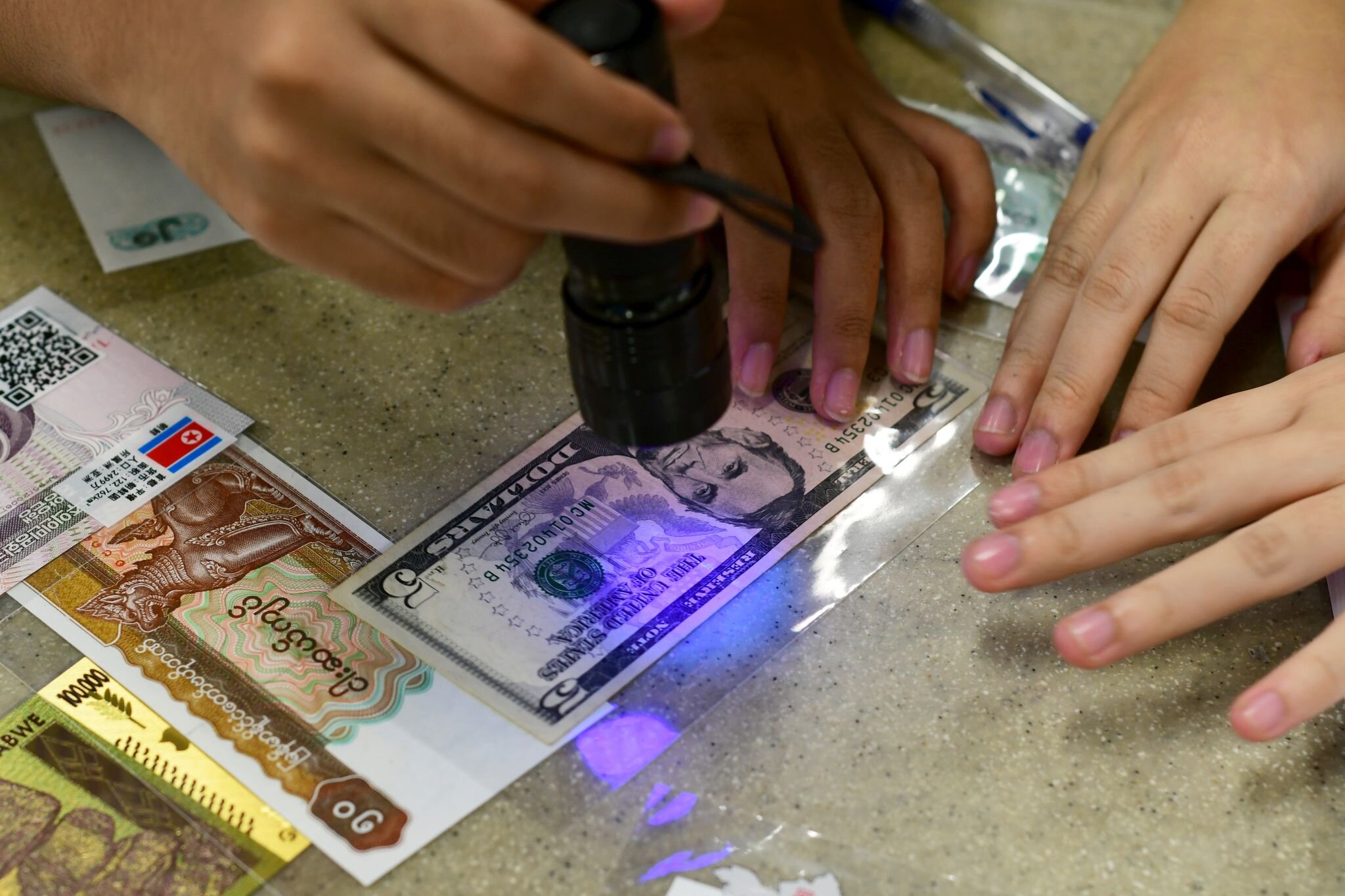One of the modules I teach my students covers lessons on Forgery and Financial Crime.
One of the activities involves my students examining currency notes from different countries around the world, as well as bank cheques.
They perform the examinations with UV lights and a digital microscope. Of course, I show them what safety features to look out for before they go at it.
Here’s the thing:
I’ve had teachers from the schools I teach at expressing concern over the fact that I’m “distributing money” and worrying that I won’t get it back.
I tell them that I’ve done this for years and I’ve never lost a single currency note or any apparatus used for this activity.
All I do at the start of the activity is tell my students matter-of-factly that I want my currency notes and bank cheques back at the end of the session.
I don’t mention this again until it’s time to return everything.
There have been multiple cases of students trying to raise a reaction in me by playfully threatening to walk off with the currency notes. I simply smile (now quite hard to see, because I’m wearing a mask) and tell them that, when they’re done, they can put it back on my table.
The point is this: Students will test boundaries and they will test you. They often do this in order to feel you out - to see whether they can look up to you, treat you as a friend, or to see if they should avoid you.
It is up to you as a teacher to set those boundaries and stick to them. It is also up to you to express confidence in your students and their moral values - that they will do the right thing, given the opportunity.
Students don’t need to be nagged or coddled. They are fully capable of doing the right thing at the right time in the right way. Give them the space to do so.
To help your confidence, I haven’t lost a single currency note.
You Are Free to Choose. But Not Free to Speak or Act Without Consequence.
Freedom to choose isn't freedom to speak or act without consequence.
For there to be social order, there must be laws and leaders.
By all means, leave if you don't like the society you're in.
But if you can't or don't want to, and yet don't want to be a follower, you have to become a leader, a law-changer or -maker, and/or a pariah.
One is not necessarily better than the others.
So make your choice and live with it.
Systems are Designed. Their Flaws Can Also be Designed Away.
It's easy to understand why people in large systems do the things they do.
Because the systems are composed of so many working parts, a tiny error somewhere can eventually lead to a cascade of catastrophe.
Or at least that's what the fear is.
As a result, most of the people working within these systems are terrified that they are going to get punished for causing a malfunction, so they opt for a "better safe than sorry", "have all my bases covered" approach to everything.
This results in blanket policies, reactive strategies, and a general unwillingness to rock the boat, making changes only if absolutely necessary and only after mind-numbingly long periods of time.
Bureaucracy, red tape, infuriatingly inflexible gatekeepers, we've all met them.
And hate them.
And yet, they aren't there by accident. They are there by design.
Which means that they can also be designed away.
Hence the immense importance of thought leadership, safe spaces, and granting autonomy.
"It All Depends..." Depends
"It's raining!"
Depending on who you are and what role you're playing at that moment, you'll have different feelings about the rain.
If you're at home and you just hung the laundry out to dry, you might be a bit exasperated, but otherwise not too disturbed.
If you're enjoying a day out, perhaps at the beach or a park, you may be feeling a bit let down or even upset that your fun has been interrupted.
If it's been a blazing hot day on a dry, sweltering month, you might actually be happy that the rain is finally here.
Who's to say which feeling is "right"?
They all are. Or, perhaps, none of them are.
It all depends, doesn't it?
And, just as we can't command the rain (unless you count cloud seeding), many circumstances around us aren't within our control.
How we feel about them... Depends.

